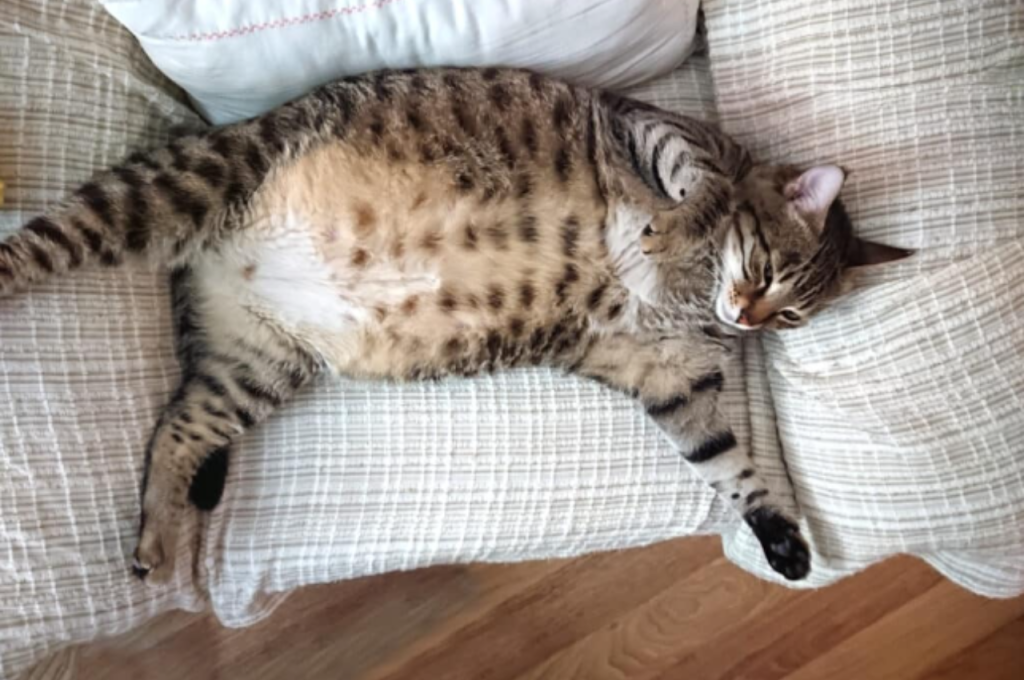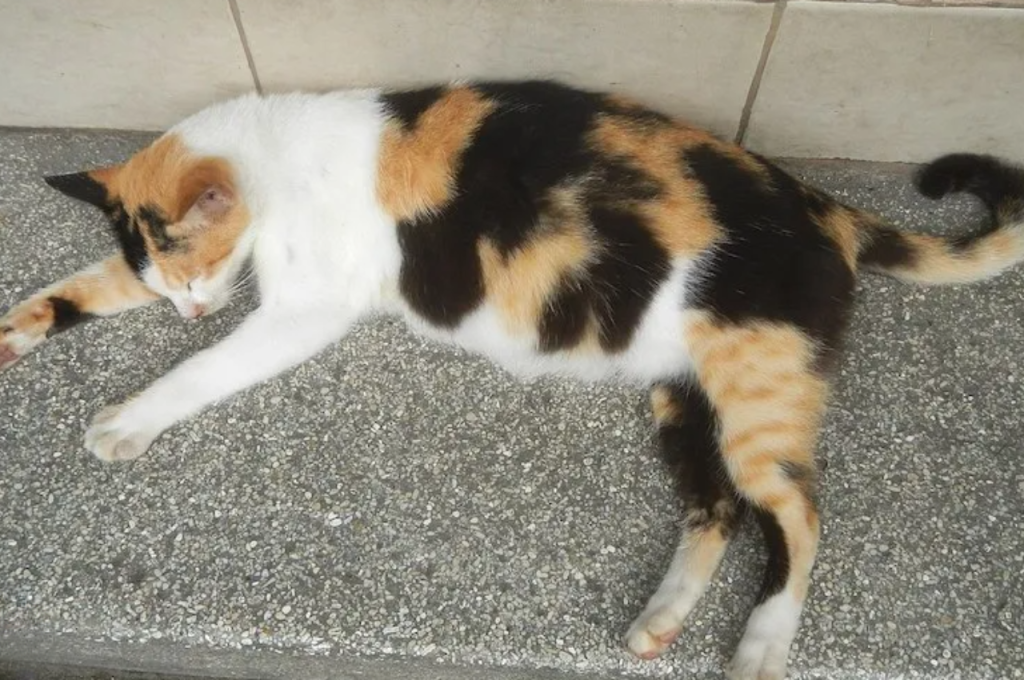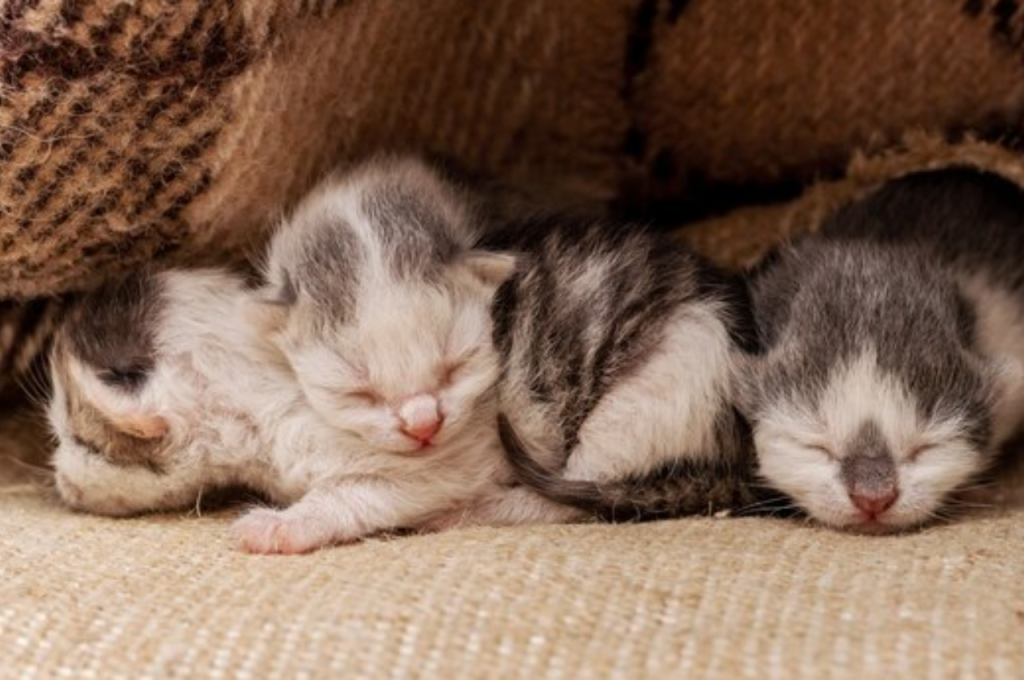Avoid giving medication, stress, or excessive handling to a pregnant cat. Provide a calm environment for her well-being.
When a cat is pregnant, there are certain things that should be avoided to ensure the health and safety of both the mother and her kittens. It’s essential to be mindful of the mother’s needs during this delicate time. By understanding what not to do when a cat is pregnant, you can help support a smooth and successful pregnancy.
In this blog post, we will explore some common mistakes to avoid and provide tips on how to care for a pregnant cat properly. Let’s delve into the do’s and don’ts of caring for a pregnant feline to ensure a safe and healthy pregnancy journey.
Introduction to Feline Pregnancy
During feline pregnancy, it’s important to know what not to do. Avoid exposing your pregnant cat to stress, certain medications, and excessive physical activity. Providing a calm and safe environment will help ensure a healthy pregnancy for your furry friend.

Feline pregnancy is a crucial time for a cat and her future kittens. It’s essential to understand the signs and stages to provide proper care. Recognizing the signs early on and knowing the duration and stages of pregnancy is vital for a successful outcome.
Recognizing The Signs
During the first few weeks, a pregnant cat may show subtle signs like increased appetite and weight gain. As pregnancy progresses, physical changes become more noticeable, such as nipple enlargement and behavioral changes.
Duration and Stages
Feline pregnancy typically lasts around 63-65 days, divided into three stages: early, middle, and late pregnancy. Each stage has specific characteristics and care requirements. It’s crucial to monitor the cat closely throughout the entire gestation period.
Common Misconceptions About Pregnant Cats
Common misconceptions about pregnant cats can lead to misinformation and potentially harmful practices. Debunking these myths and presenting factual information is crucial for the well-being of both the mother cat and her kittens. By understanding the truth about cat pregnancy, owners can provide the best possible care for their feline companions.
Myths Debunked
- Myth: Pregnant cats need to eat significantly more than usual.
- Fact: While a pregnant cat’s food intake may increase slightly in the later stages of pregnancy, overfeeding can lead to obesity and complications during birth.
- Myth: Pregnant cats should not engage in any physical activity.
- Fact: Moderate exercise is beneficial for pregnant cats, as it helps maintain muscle tone and prevents excessive weight gain.
- Myth: It is unnecessary to provide a separate space for a pregnant cat.
- Fact: Pregnant cats require a quiet, secluded area where they can nest and give birth comfortably.
Facts for Clarity
- Pregnant cats should receive a balanced diet with increased protein and nutrients, but overfeeding should be avoided.
- Regular veterinary check-ups are essential to monitor the health of the mother cat and the developing kittens.
- Pregnant cats may display nesting behaviors as they prepare for birth, and this should be supported with a suitable environment.
Feeding Faux Pas
During your cat’s pregnancy, it’s important to avoid certain feeding faux pas. Ensure you don’t overfeed or underfeed her, and provide a balanced diet rich in nutrients. Remember to consult with your veterinarian for specific dietary recommendations tailored to your cat’s needs.
Proper nutrition is crucial for a pregnant cat’s health and the development of her kittens. However, there are certain feeding faux pas that you should avoid to ensure the well-being of your feline friend. In this section, we will discuss the improper diet choices and overfeeding risks that you should be aware of.
Improper Diet Choices
When it comes to a pregnant cat’s diet, it’s important to make appropriate choices to support her changing nutritional needs. Avoid feeding her foods that are high in fat, as this can lead to excessive weight gain and potential complications during pregnancy. Additionally, refrain from offering her foods that are toxic to cats, such as onions, garlic, chocolate, and caffeine.
Instead, focus on providing a well-balanced diet that includes high-quality commercial cat food specifically formulated for pregnant or nursing cats. These foods are designed to meet the increased nutritional requirements of your cat during this crucial time. Consult your veterinarian to determine the most suitable diet plan for your pregnant cat.
Overfeeding Risks
While it’s important to ensure your pregnant cat receives adequate nutrition, overfeeding can pose risks to both her and her kittens. Excessive weight gain can lead to complications during delivery, such as difficulty in labor or increased chances of requiring a cesarean section.
Moreover, overfeeding can also contribute to obesity in your cat, which can have long-term negative effects on her health. Obesity increases the risk of various health issues, including diabetes, joint problems, and heart disease. To prevent overfeeding, it’s essential to follow the feeding guidelines provided by your veterinarian or the cat food manufacturer. These guidelines take into account the specific needs of a pregnant cat and can help you determine the appropriate portion sizes and feeding frequency.
Remember, providing your pregnant cat with a healthy and balanced diet is essential for the well-being of both her and her kittens. By avoiding improper diet choices and overfeeding, you can help ensure a smooth and successful pregnancy for your feline companion.
Handling Hazards
During a cat’s pregnancy, it’s important to avoid stressing or overfeeding her. Refrain from administering any medication without veterinary approval, and never ignore signs of distress. It’s crucial not to expose the pregnant cat to potential hazards such as toxic plants or chemicals.
Rough Play and Its Dangers
When your cat is pregnant, it is crucial to be mindful of how you handle her. Rough play can pose significant risks to both the mother and her unborn kittens. Cats may instinctively engage in rough play, but it’s essential to discourage this behavior during pregnancy. Rough play can lead to accidental injuries, resulting in complications that could harm the health of the mother and her unborn kittens.

Here are a few important points to keep in mind:
- Avoid any games or activities that involve rough physical contact, such as wrestling or tugging on toys. These actions can cause unnecessary stress on the pregnant cat’s body and may lead to injuries.
- Discourage any behavior that encourages the cat to pounce or jump excessively. Pregnant cats have a higher risk of sustaining injuries due to their changing center of gravity.
- Keep an eye out for signs of discomfort or distress during playtime. If the cat shows any signs of pain or discomfort, it’s important to stop the activity immediately and consult with a veterinarian.
The Stress of Overhandling
Pregnant cats can also experience stress from excessive handling. While it’s natural to want to shower your furry friend with affection, it’s important to strike a balance and be mindful of her comfort levels. Overhandling can lead to increased stress, which may negatively impact the health of both the mother and her kittens.
Here’s what you should consider:
- Limit the duration and frequency of handling sessions to avoid overwhelming the pregnant cat.
- Pay attention to the cat’s body language and behavior. If she displays signs of discomfort, such as growling, hissing, or trying to escape, it’s crucial to give her space and minimize handling.
- Create a calm and quiet environment for the pregnant cat, ensuring she has a safe space where she can retreat and rest undisturbed.
Vaccination and Medication Mistakes
When a cat is pregnant, avoid unsafe treatments and always consult the vet for safe options regarding vaccinations and medications.
Unsafe Treatments
Avoid giving unapproved medications to a pregnant cat as it can harm the kittens and mother.
Consulting The Vet for Safe Options
Prioritize vet consultations for safe and approved vaccinations and medications during cat pregnancy.
Environmental Stressors to Avoid
Steer clear of environmental stressors when your cat is pregnant to ensure a safe and healthy pregnancy. Avoid exposure to toxic substances, loud noises, and stressful situations to protect the well-being of the expecting feline. Remember, a calm and peaceful environment is crucial during this delicate time.
When a cat is pregnant, it is important to ensure that she is not exposed to any environmental stressors that could harm her or her unborn kittens. Stress can affect the pregnancy, leading to complications and even miscarriage. As a responsible cat owner, you should be aware of the environmental stressors that can affect your cat during pregnancy and take steps to avoid them. In this blog post, we will discuss some of the environmental stressors that you should avoid when your cat is pregnant.
Loud Noises and Their Impact
Loud noises can be very stressful for cats, especially when they are pregnant. Exposure to loud noises can cause your cat to become anxious and agitated, leading to a release of stress hormones that can affect the pregnancy. As a result, you should avoid exposing your cat to loud noises during her pregnancy. This includes loud music, construction work, and even vacuum cleaners. If you must do something noisy, try to keep your cat in a separate room where she can’t hear the noise.
Unsafe Spaces and How to Secure Them
Cats are curious creatures and can easily get into dangerous situations when they are pregnant. As a result, it is important to secure any unsafe spaces in your home to ensure that your cat does not get hurt. This includes securing windows and doors, covering any exposed wires, and removing any toxic plants or chemicals from your home. You should also create a safe and comfortable space for your cat to give birth, such as a quiet room with a comfortable bed and plenty of food and water.
In conclusion, it is important to be aware of the environmental stressors that can affect your cat during pregnancy and take steps to avoid them. Loud noises and unsafe spaces are just two examples of the stressors that you should be aware of. By taking the necessary precautions, you can ensure that your cat has a safe and stress-free pregnancy, leading to healthy kittens and a happy mother cat.
Neglecting Veterinary Visits
Neglecting veterinary visits during your cat’s pregnancy can be harmful. Regular check-ups are essential to ensure the health of both the mother and her kittens. Avoiding these visits could lead to undetected issues that may put the pregnancy at risk.
Importance of Prenatal Care
During pregnancy, neglecting veterinary visits can be detrimental to the health of the mother cat and her kittens. Regular prenatal care is crucial to ensure the well-being of the expectant feline and to address any potential complications that may arise.
Tracking The Pregnancy Progress
Proper prenatal care involves tracking the pregnancy’s progress through veterinary visits. These visits enable the veterinarian to monitor the cat’s health, detect any potential issues, and provide necessary guidance to ensure a smooth pregnancy and delivery.
Ignoring The Need for a Nesting Area
It’s important not to ignore the need for a nesting area when your cat is pregnant. Providing a safe, comfortable, and quiet space for her to give birth and care for her kittens is essential for their health and well-being.
Creating a Comfortable Space
When a cat is pregnant, it’s crucial to create a comfortable nesting area. This space should be quiet, warm, and secluded to help the expectant mother feel secure. Providing a cozy bed with soft blankets can help her relax and prepare for the birth of her kittens.
Privacy and safety for birthing
Privacy and safety are essential during the birthing process. A secluded area away from household traffic and noise is crucial. Ensuring a safe environment for the mother and her kittens is imperative to minimize stress and potential dangers. The nesting area should be free from hazards and other pets.
By paying attention to these crucial factors, you can help ensure a smooth and stress-free pregnancy and birthing process for your cat.
Inadequate Preparation for Birth
Improper preparation for a cat’s birth can be harmful. To ensure a successful pregnancy, avoid neglecting regular vet check-ups and provide a comfortable, stress-free environment. Additionally, do not overlook the importance of proper nutrition and adequate rest for the expecting cat.
When your cat is pregnant, it is essential to prepare for the upcoming birth to ensure a safe and healthy delivery. Inadequate preparation can lead to complications during labor, which can put your cat and her kittens’ lives at risk. Here are some things to avoid during your cat’s pregnancy to ensure that you are adequately prepared for the birth.
Emergency Signs to Watch for
During your cat’s pregnancy, it’s crucial to watch out for any emergency signs that could indicate complications. These signs may include a lack of appetite, lethargy, fever, or any unusual vaginal discharge. If you notice any of these signs, contact your veterinarian immediately. Early intervention can prevent further complications and ensure a safe delivery.
When to Intervene During Labor
During labor, it’s essential to monitor your cat closely and know when to intervene. If your cat is experiencing prolonged contractions without delivering a kitten, or if she has been in labor for more than two hours without delivering a kitten, contact your veterinarian immediately. If you notice any signs of distress in your cat or her kittens, such as difficulty breathing or lethargy, seek immediate veterinary care.
To avoid inadequate preparation for your cat’s pregnancy, you can take some steps to ensure a safe and healthy delivery. These steps may include creating a comfortable birthing area for your cat, ensuring that you have all the necessary supplies, and having a plan in place for emergencies. By taking these steps, you can help ensure that your cat has a smooth and stress-free delivery.
Postpartum Pitfalls
After a cat gives birth, it’s crucial to be aware of potential postpartum pitfalls. Proper care for the mother and monitoring the health of the kittens are essential to ensure a successful outcome.

Care for The Mother Post-birth
- Provide a quiet and secluded space for the mother cat.
- Ensure she has access to fresh water and nutritious food.
- Monitor her closely for any signs of distress or health issues.
Monitoring The Health of Kittens
- Check that each kitten is nursing and gaining weight.
- Keep the nesting area clean and warm for the kittens.
- Watch for any signs of illness or weakness in the kittens.
Conclusion
It’s important to avoid certain actions when your cat is pregnant. Providing proper nutrition, avoiding stress, and keeping a clean environment are all crucial for your cat’s health and the health of her kittens. It’s also important to consult with your veterinarian throughout the pregnancy to ensure everything is progressing smoothly.
By following these guidelines, you can help ensure a successful and healthy pregnancy for your feline friend.
